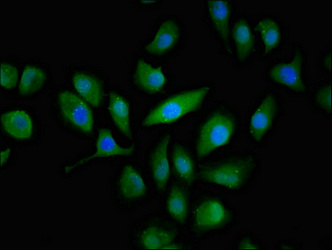ATP-dependent transporter of the ATP-binding cassette (ABC) family that bind and hydrolyze ATP to enable active transport of various substrates including many drugs, toxicants and endogenous compound across cell membranes. Transports glucuronide conjugates such as bilirubin diglucuronide, estradiol-17-beta-o-glucuronide and GSH conjugates such as leukotriene C4 (LTC4). Transports also various bile salts (taurocholate, glycocholate, taurochenodeoxycholate-3-sulfate, taurolithocholate- 3-sulfate). Does not contribute substantially to bile salt physiology but provides an alternative route for the export of bile acids and glucuronides from cholestatic hepatocytes. Can confers resistance to various anticancer drugs, methotrexate, tenoposide and etoposide, by decreasing accumulation of these drugs in cells.







